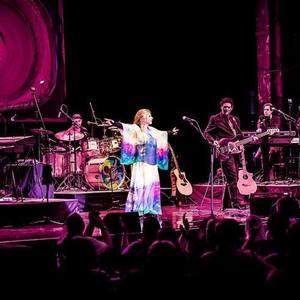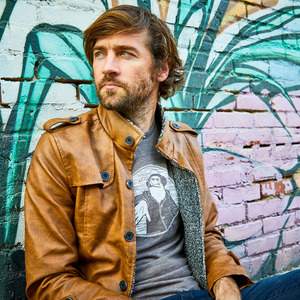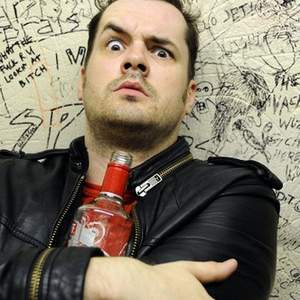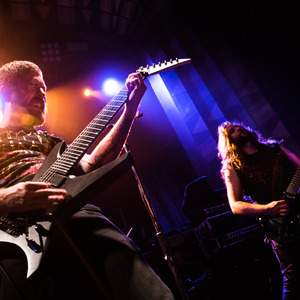Renaissance Tour 2025
November 7, 2025 -
Right now, the Renaissance tickets became available for everybody.
Everybody can now experience an incredible show from their favorite performer. Our online platform is the best place for finding the best tickets. On our website you will find exclusive ticket offers.
This year has been incredible for Renaissance and their latest tour is the proof of that. It is on everybody’s radar right now. Their shows attract thousands of people even from neighboring regions. Only the best arenas, stadiums, and concert halls are able to host these events and provide all the necessary services to thousands of people. With us, it is not a problem getting a Renaissance VIP package that includes only the best tickets.
We are confident that here you will find the best tickets for a complete experience. You can also choose tickets based on your seat preferences. With us it is much easier to follow the Renaissance schedule and see where the next concert will take place. You can book your tickets in advance and secure the lowest price.
A live concert of your favorite band is a special event that cannot be experienced anywhere else. This is exactly why fans keep travelling together with the band to many destinations around the world. This has to be experienced at least once and then you will understand why events like these happen everywhere. It is very easy to navigate our website and find the necessary information about the concerts and dates.
When your favorite band arrives in your hometown, we will make sure to provide you with the best offers. Here you will find the Renaissance 2025 tour dates and all the details related to their live shows.
Renaissance Tickets 2025 - 2026
Renaissance VIP Packages 2025/2026


About Renaissance
The Renaissance ( rin-AY-sənss, REN-ə-sahnss) was a period in European history marking the transition from the Middle Ages to modernity and covering the 15th and 16th centuries. It occurred after the Crisis of the Late Middle Ages and was associated with great social change. In addition to the standard periodization, proponents of a long Renaissance put its beginning in the 14th century and its end in the 17th century. The traditional view focuses more on the early modern aspects of the Renaissance and argues that it was a break from the past, but many historians today focus more on its medieval aspects and argue that it was an extension of the Middle Ages.
The intellectual basis of the Renaissance was its version of humanism, derived from the concept of Roman Humanitas and the rediscovery of classical Greek philosophy, such as that of Protagoras, who said that "Man is the measure of all things." This new thinking became manifest in art, architecture, politics, science and literature. Early examples were the development of perspective in oil painting and the recycled knowledge of how to make concrete. Although the invention of metal movable type sped the dissemination of ideas from the later 15th century, the changes of the Renaissance were not uniformly experienced across Europe: the first traces appear in Italy as early as the late 13th century, in particular with the writings of Dante and the paintings of Giotto.
As a cultural movement, the Renaissance encompassed innovative flowering of Latin and vernacular literatures, beginning with the 14th-century resurgence of learning based on classical sources, which contemporaries credited to Petrarch; the development of linear perspective and other techniques of rendering a more natural reality in painting; and gradual but widespread educational reform. In politics, the Renaissance contributed to the development of the customs and conventions of diplomacy, and in science to an increased reliance on observation and inductive reasoning. Although the Renaissance saw revolutions in many intellectual pursuits, as well as social and political upheaval, it is perhaps best known for its artistic developments and the contributions of such polymaths as Leonardo da Vinci and Michelangelo, who inspired the term "Renaissance man".
The Renaissance began in the 14th century in Florence, Italy. Various theories have been proposed to account for its origins and characteristics, focusing on a variety of factors including the social and civic peculiarities of Florence at the time: its political structure, the patronage of its dominant family, the Medici, and the migration of Greek scholars and their texts to Italy following the Fall of Constantinople to the Ottoman Turks which inherited from the Timurid Renaissance. Other major centres were northern Italian city-states such as Venice, Genoa, Milan, Bologna, and Rome during the Renaissance Papacy or Belgian cities such as Bruges, Ghent, Brussels, Leuven or Antwerp.
The Renaissance has a long and complex historiography, and, in line with general scepticism of discrete periodizations, there has been much debate among historians reacting to the 19th-century glorification of the "Renaissance" and individual culture heroes as "Renaissance men", questioning the usefulness of Renaissance as a term and as a historical delineation. The art historian Erwin Panofsky observed of this resistance to the concept of "Renaissance":
Some observers have called into question whether the Renaissance was a cultural "advance" from the Middle Ages, instead seeing it as a period of pessimism and nostalgia for classical antiquity, while social and economic historians, especially of the longue durée, have instead focused on the continuity between the two eras, which are linked, as Panofsky observed, "by a thousand ties".
The term rinascita ('rebirth') first appeared in Giorgio Vasari's Lives of the Artists (c. 1550), anglicized as the Renaissance in the 1830s. The word has also been extended to other historical and cultural movements, such as the Carolingian Renaissance (8th and 9th centuries), Ottonian Renaissance (10th and 11th century), and the Renaissance of the 12th century.














